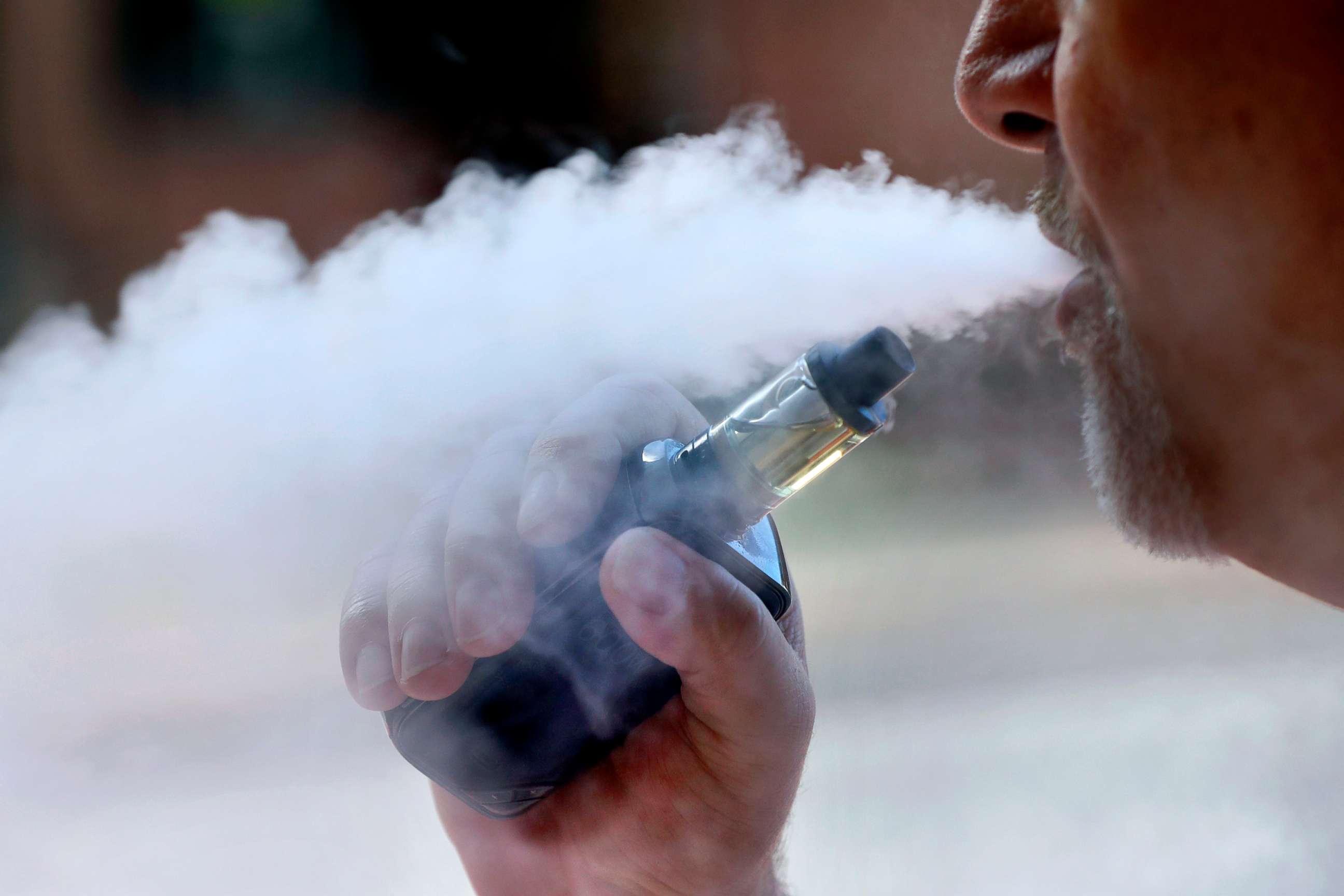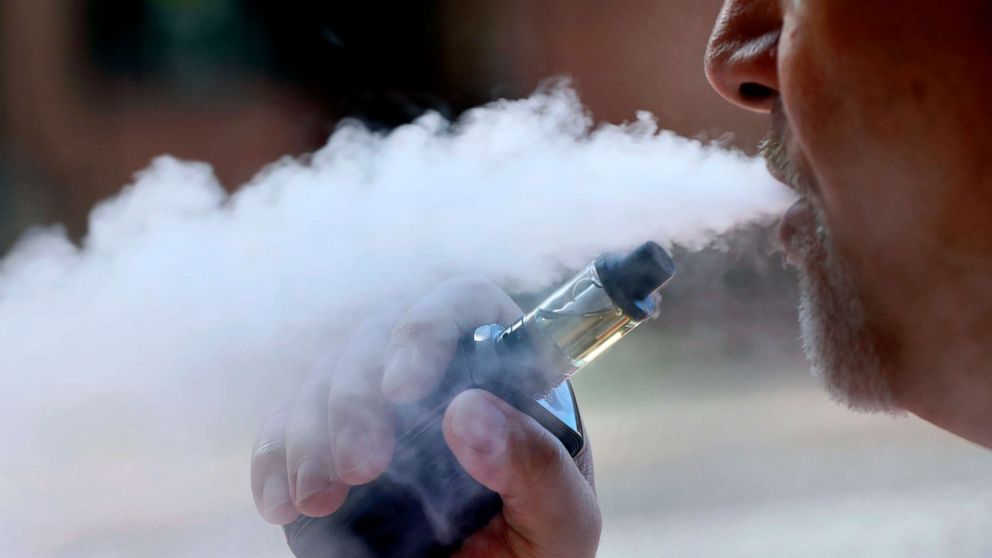Explaining what the link may be between mysterious illnesses and vaping
Public health officials may be closing in on a common thread in the vaping products linked to severe lung illness spreading across the country.
The New York State Department of Health Thursday announced that all of the cases in New York involved at least one THC-containing vape product and nearly all the THC-containing samples being analyzed at their Wadsworth Center Laboratory have very high levels of a chemical called vitamin E acetate, an oil derived from vitamin E.
The Washington Post reported similar results being seen in Food and Drug Administration labs.
New York state said in a release, "As a result, vitamin E acetate is now a key focus of the Department’s investigation of potential causes of vaping-associated pulmonary illnesses."
Vitamin E acetate is a commonly available nutritional supplement that is not known to cause harm when ingested as a vitamin supplement or applied to the skin. However, the FDA continues to investigate its health effects when inhaled because its oil-like properties could be associated with the observed symptoms.

Although most cases have involved vaping of THC-containing products, none of the cases thus far have been connected to products from certified medical cannabis retailers in New York, where vitamin E acetate is not permitted as an additive, a spokesperson from the New York State Department of Health told ABC News.
However, a vaping-related death in Oregon was linked to the use of THC-containing vape liquid purchased from a legal dispensary.
"Something about vaporizing THC concentrates seems to be more inflammatory than smoking them," Dr. Laura Crotty Alexander, intensive care physician and researcher at the University of California San Diego, told ABC News.
It is not known if the vaping liquid from the case in Oregon contained vitamin E acetate. Other states, including Wisconsin, New Mexico and Maryland, have reported the majority of cases of illness they have logged were related to THC-containing vape liquids. Wisconsin health officials said last month that 89% of those reporting illnesses from vaping cited using products with THC.
The FDA told ABC News it continues to analyze a broad range of chemicals to find an answer to the health issues, "including nicotine, THC and other cannabinoids along with cutting agents/diluents and other additives, pesticides, opioids, poisons and toxins."
"Importantly, identifying any compounds that are present in the samples will be one piece of the puzzle but will not necessarily answer questions about causality," the FDA said in a statement.

There have been 215 people in 25 states hospitalized with severe lung conditions in the last few weeks alone, according to the Centers for Disease Control, leaving public health officials throughout the country wondering what is actually happening to peoples’ lungs who have vaped.
New York state officials have come down firmly, warning the public about the dangers of vaping: "We urge the public to be vigilant about any vaping products that they or any family members may be using and to immediately contact their health care provider if they develop any unusual symptoms."
Lauren Kelly, MD, MPH, is an Internal Medicine resident physician in New York City working with the ABC News Medical Unit.




